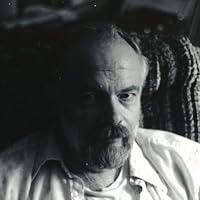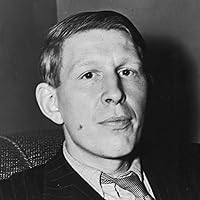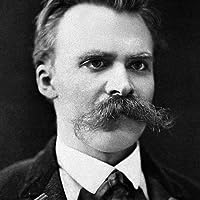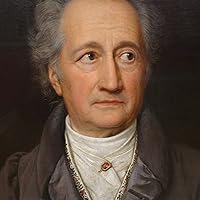Wagner Quotes
Quotes tagged as "wagner"
Showing 1-22 of 22

“I can see Richard Wagner standing at the gates of heaven. "You have to let me in," he says. "I wrote Parsifal. It has to do with the Grail, Christ, suffering, pity and healing. Right?" And they answer, "Well, we read it and it makes no sense." SLAM.”
― VALIS
― VALIS

“If Wagner lived today, he would probably work with film instead of music. He already knew back then that the Great Art Form would include a sort of fourth dimension; it was really film he was talking about.”
―
―

“If it really was Queen Elizabeth who demanded to see Falstaff in a comedy, then she showed herself a very perceptive critic. But even in The Merry Wives of Windsor, Falstaff has not and could not have found his true home because Shakespeare was only a poet. For that he was to wait nearly two hundred years till Verdi wrote his last opera. Falstaff is not the only case of a character whose true home is the world of music; others are Tristan, Isolde and Don Giovanni.”
― The Dyer's Hand and Other Essays
― The Dyer's Hand and Other Essays

“they would be astonished to discover the seriously German problem that we are dealing with, a vortex and a turning-point at the very centre of German hopes. But perhaps those same people will find it distasteful to see an aesthetic problem taken so seriously, if they can see art as nothing more than an entertaining irrelevance, an easily dispensable tinkle of bells next to the 'seriousness of life': as if no one was aware what this contrast with the 'seriousness of life' amounted to. Let these serious people know that I am convinced that art is the supreme task and the truly metaphysical activity of this life in the sense of that man, my noble champion on that path, to whom I dedicate this book.”
― The Birth of Tragedy
― The Birth of Tragedy

“Good God! Think of listening to Wagner for a whole fortnight with a woman who takes about as much interest in music as a tone-deaf newt - that would be fun!”
― Swann’s Way
― Swann’s Way

“Come into my world.
I will show you the phenomenon that Stendhal experienced. I will help you feel the cascading arpeggios of Wagner's overture. I will dance to Doga’s waltzes with you.
A day spent without appreciating the beauty surrounding us is a waste. Let me appreciate you”
―
I will show you the phenomenon that Stendhal experienced. I will help you feel the cascading arpeggios of Wagner's overture. I will dance to Doga’s waltzes with you.
A day spent without appreciating the beauty surrounding us is a waste. Let me appreciate you”
―
“Everybody feels oppressed during a Wagner performance. That is part of the appeal.”
― The Danger of Music and Other Anti-Utopian Essays
― The Danger of Music and Other Anti-Utopian Essays

“k Heb jarenlang achter mijn boeken zitten zweten;
en ‘k weet wel veel maar ik wil alles weten.”
― Faust
en ‘k weet wel veel maar ik wil alles weten.”
― Faust

“Wagner: Yet elocution makes the orator;
I'm far behind, I feel it more and more.
Faust: Seek thou an honest retribution!
Be thou no motley, jingling fool!
It needs but little elocution
To speak good sense by reason's rule.
It ye've a message to deliver,
Need ye for words be hunting ever?”
― Faust
I'm far behind, I feel it more and more.
Faust: Seek thou an honest retribution!
Be thou no motley, jingling fool!
It needs but little elocution
To speak good sense by reason's rule.
It ye've a message to deliver,
Need ye for words be hunting ever?”
― Faust
“Science would not be what it is if there had not been a Galileo, a Newton or a Lavoisier, any more than music would be what it is if Bach, Beethoven and Wagner had never lived. The world as we know it is the product of its geniuses—and there may be evil as well as beneficent genius—and to deny that fact, is to stultify all history, whether it be that of the intellectual or the economic world.”
― What Is Science?
― What Is Science?
“Dorothy's world had become very small-visits to the chapel downstairs, vespers, and Communion, and opera on the radio (including Wagner, whom she refused to let Hitler, or even Wagner himself, ruin for her).”
― Dorothy Day; The World Will Be Saved By Beauty: An Intimate Portrait of Dorothy Day
― Dorothy Day; The World Will Be Saved By Beauty: An Intimate Portrait of Dorothy Day

“Wagner's gods and heroes are exactly like human beings, on a grand scale: every human virtue and every human temptation is there. Tolkien leaves a good half of them out. No one in Middle Earth has any sexual relations at all. I think their children must be delivered by post.”
― Dæmon Voices
― Dæmon Voices
“Wagner thought Rossini unserious; Rossini thought Wagner 'lacked sun'. Wagner also became the butt of a phrase Rossini had used down the years to describe musicians about whom he had certain reservations - "He has some beautiful moments but some bad quarters of an hour!”
― Rossini
― Rossini
“Die Meinung des Künstlers über seine Bedürfnisse führt oft zu wirtschaftlichen Gegebenheiten. Wagner wünschte, herrlich zu leben. Seine Haut vertrug nur Seide,; er verwarf alle Angebote der Welt, sich mit einem Kleinbürgerdasein zu begnügen, und zog vor, ein Verbrecherdasein zu führen, so lange, bis er dann endlich sein königliches Wirtstier gefunden hatte.”
― Die Maßgaben der Kunst
― Die Maßgaben der Kunst

“So, he eagerly drove from Basel to Bayreuth before the festival began to watch the last rehearsals of The Ring Cycle. As he watched, it hit him like Odin's bowel movement: the opera was shit.”
― Operation Cosmic Teapot
― Operation Cosmic Teapot
“11
— I have explained where Wagner belongs—not in the history of music. What does he signify nevertheless in that history? The emergence of the actor in music: a capital event that invites thought, perhaps also fear. In a formula: "Wagner and Liszt."— Never yet has the integrity of musicians, their "authenticity," been put to the test so dangerously. One can grasp it with one's very hands: great success, success with the masses no longer sides with those who are authentic,—one has to be an actor to achieve that!— Victor Hugo and Richard Wagner—they both prove one and the same thing: that in declining civilizations, wherever the mob is allowed to decide, genuineness becomes superfluous, prejudicial, unfavorable. The actor, alone, can still kindle great enthusiasm.— And thus it is his golden age which is now dawning—his and that of all those who are in any way related to him. With drums and fifes, Wagner marches at the head of all artists in declamation, in display and virtuosity. He began by convincing the conductors of orchestras, the scene-shifters and stage-singers, not to forget the orchestra:—he "redeemed" them from monotony .... The movement that Wagner created has spread even to the land of knowledge: whole sciences pertaining to music are rising slowly, out of centuries of scholasticism. As an example of what I mean, let me point more particularly to Riemann's [Hugo Riemann (1849-1919): music theoretician] services to rhythmic; he was the first who called attention to the leading idea in punctuation—even for music (unfortunately he did so with a bad word; he called it "phrasing"). All these people, and I say it with gratitude, are the best, the most respectable among Wagner's admirers—they have a perfect right to honor Wagner. The same instinct unites them with one another; in him they recognize their highest type, and since he has inflamed them with his own ardor they feel themselves transformed into power, even into great power. In this quarter, if anywhere, Wagner's influence has really been beneficial. Never before has there been so much thinking, willing, and industry in this sphere. Wagner endowed all these artists with a new conscience: what they now exact and obtain from themselves, they had never extracted before Wagner's time—before then they had been too modest. Another spirit prevails on the stage since Wagner rules there: the most difficult things are expected, blame is severe, praise very scarce—the good and the excellent have become the rule. Taste is no longer necessary, nor even is a good voice. Wagner is sung only with ruined voices: this has a more "dramatic" effect. Even talent is out of the question. Expressiveness at all costs, which is what the Wagnerian ideal—the ideal of décadence—demands, is hardly compatible with talent. All that is required for this is virtue—that is to say, training, automatism, "self-denial." Neither taste, voices, nor gifts: Wagner's stage requires one thing only—Teutons! ... Definition of the Teuton: obedience and long legs ... It is full of profound significance that the arrival of Wagner coincides in time with the arrival of the "Reich": both actualities prove the very same thing: obedience and long legs.— Never has obedience been better, never has commanding. Wagnerian conductors in particular are worthy of an age that posterity will call one day, with awed respect, the classical age of war. Wagner understood how to command; in this, too, he was the great teacher. He commanded as the inexorable will to himself, as lifelong self-discipline: Wagner who furnishes perhaps the greatest example of self-violation in the history of art (—even Alfieri, who in other respects is his next-of-kin, is outdone by him. The note of a Torinese).
12
The insight that our actors are more deserving of admiration than ever does not imply that they are any less dangerous ... But who could still doubt what I want,—what are the three demands for which my my love of art has compelled me?”
―
— I have explained where Wagner belongs—not in the history of music. What does he signify nevertheless in that history? The emergence of the actor in music: a capital event that invites thought, perhaps also fear. In a formula: "Wagner and Liszt."— Never yet has the integrity of musicians, their "authenticity," been put to the test so dangerously. One can grasp it with one's very hands: great success, success with the masses no longer sides with those who are authentic,—one has to be an actor to achieve that!— Victor Hugo and Richard Wagner—they both prove one and the same thing: that in declining civilizations, wherever the mob is allowed to decide, genuineness becomes superfluous, prejudicial, unfavorable. The actor, alone, can still kindle great enthusiasm.— And thus it is his golden age which is now dawning—his and that of all those who are in any way related to him. With drums and fifes, Wagner marches at the head of all artists in declamation, in display and virtuosity. He began by convincing the conductors of orchestras, the scene-shifters and stage-singers, not to forget the orchestra:—he "redeemed" them from monotony .... The movement that Wagner created has spread even to the land of knowledge: whole sciences pertaining to music are rising slowly, out of centuries of scholasticism. As an example of what I mean, let me point more particularly to Riemann's [Hugo Riemann (1849-1919): music theoretician] services to rhythmic; he was the first who called attention to the leading idea in punctuation—even for music (unfortunately he did so with a bad word; he called it "phrasing"). All these people, and I say it with gratitude, are the best, the most respectable among Wagner's admirers—they have a perfect right to honor Wagner. The same instinct unites them with one another; in him they recognize their highest type, and since he has inflamed them with his own ardor they feel themselves transformed into power, even into great power. In this quarter, if anywhere, Wagner's influence has really been beneficial. Never before has there been so much thinking, willing, and industry in this sphere. Wagner endowed all these artists with a new conscience: what they now exact and obtain from themselves, they had never extracted before Wagner's time—before then they had been too modest. Another spirit prevails on the stage since Wagner rules there: the most difficult things are expected, blame is severe, praise very scarce—the good and the excellent have become the rule. Taste is no longer necessary, nor even is a good voice. Wagner is sung only with ruined voices: this has a more "dramatic" effect. Even talent is out of the question. Expressiveness at all costs, which is what the Wagnerian ideal—the ideal of décadence—demands, is hardly compatible with talent. All that is required for this is virtue—that is to say, training, automatism, "self-denial." Neither taste, voices, nor gifts: Wagner's stage requires one thing only—Teutons! ... Definition of the Teuton: obedience and long legs ... It is full of profound significance that the arrival of Wagner coincides in time with the arrival of the "Reich": both actualities prove the very same thing: obedience and long legs.— Never has obedience been better, never has commanding. Wagnerian conductors in particular are worthy of an age that posterity will call one day, with awed respect, the classical age of war. Wagner understood how to command; in this, too, he was the great teacher. He commanded as the inexorable will to himself, as lifelong self-discipline: Wagner who furnishes perhaps the greatest example of self-violation in the history of art (—even Alfieri, who in other respects is his next-of-kin, is outdone by him. The note of a Torinese).
12
The insight that our actors are more deserving of admiration than ever does not imply that they are any less dangerous ... But who could still doubt what I want,—what are the three demands for which my my love of art has compelled me?”
―
“Vāgners ir fantastiska parādība. Tās ir teknes cauri Visumam, kurā visi augi atmirdz kā spogulī, taču laižot cauri teknei ūdeni, saprotat? Lūk, tāda noteka no pasauļu Visuma. Aiz tās jau zvaigznes, eņģeļi, bet aiz eņģeļiem – normāli cilvēki.”
―
―
All Quotes
|
My Quotes
|
Add A Quote
Browse By Tag
- Love Quotes 98k
- Life Quotes 76.5k
- Inspirational Quotes 73.5k
- Humor Quotes 44k
- Philosophy Quotes 30k
- Inspirational Quotes Quotes 27k
- God Quotes 26.5k
- Truth Quotes 24k
- Wisdom Quotes 23.5k
- Romance Quotes 23.5k
- Poetry Quotes 22.5k
- Death Quotes 20k
- Life Lessons Quotes 20k
- Happiness Quotes 19k
- Quotes Quotes 18k
- Hope Quotes 18k
- Faith Quotes 18k
- Inspiration Quotes 17k
- Spirituality Quotes 15k
- Religion Quotes 15k
- Motivational Quotes 15k
- Writing Quotes 15k
- Relationships Quotes 14.5k
- Life Quotes Quotes 14.5k
- Love Quotes Quotes 14k
- Success Quotes 13.5k
- Time Quotes 12.5k
- Motivation Quotes 12.5k
- Science Quotes 11.5k
- Motivational Quotes Quotes 11.5k




